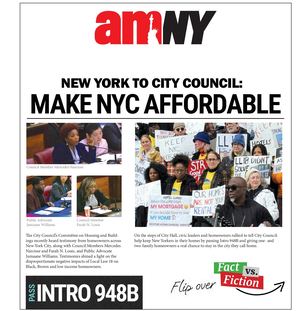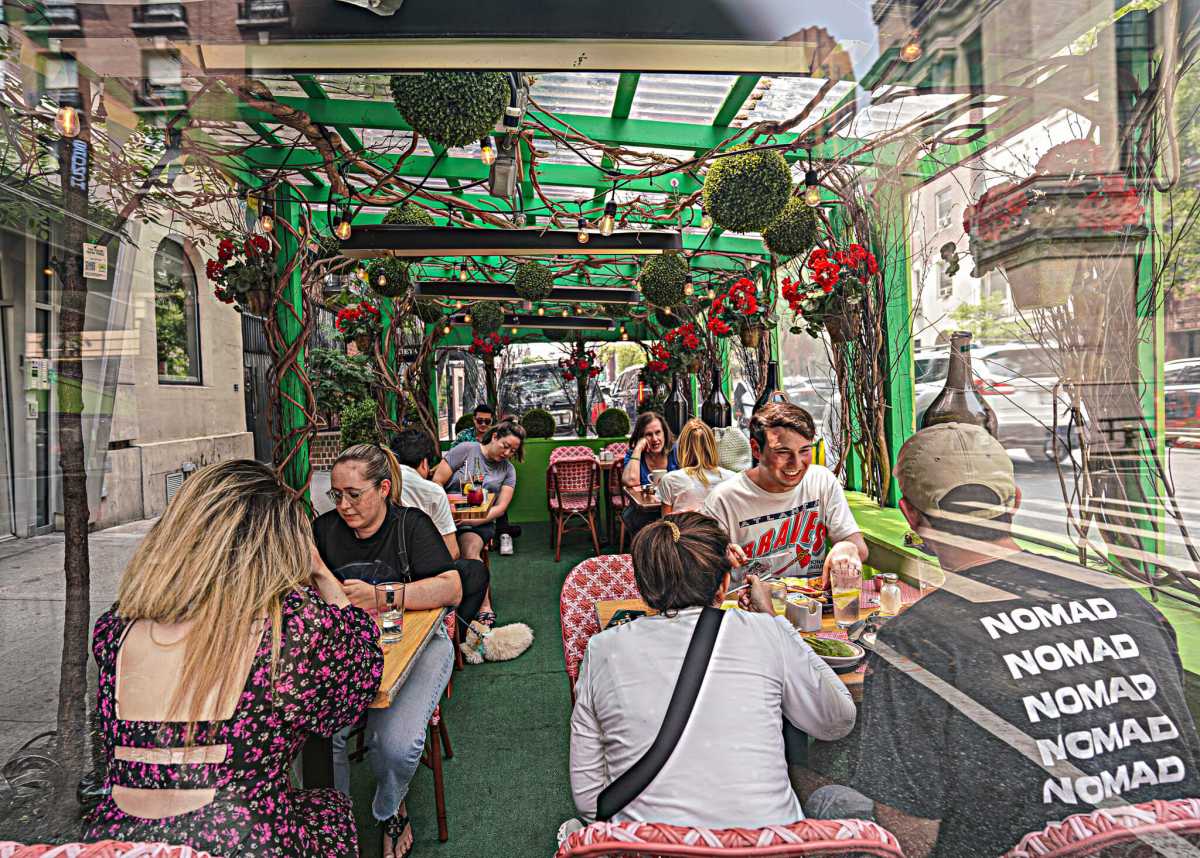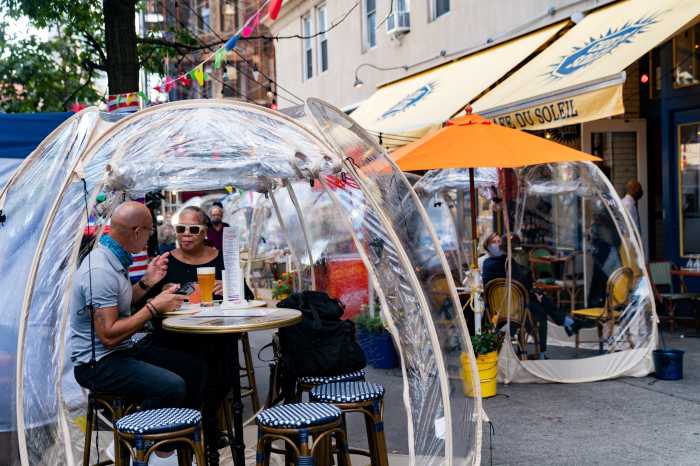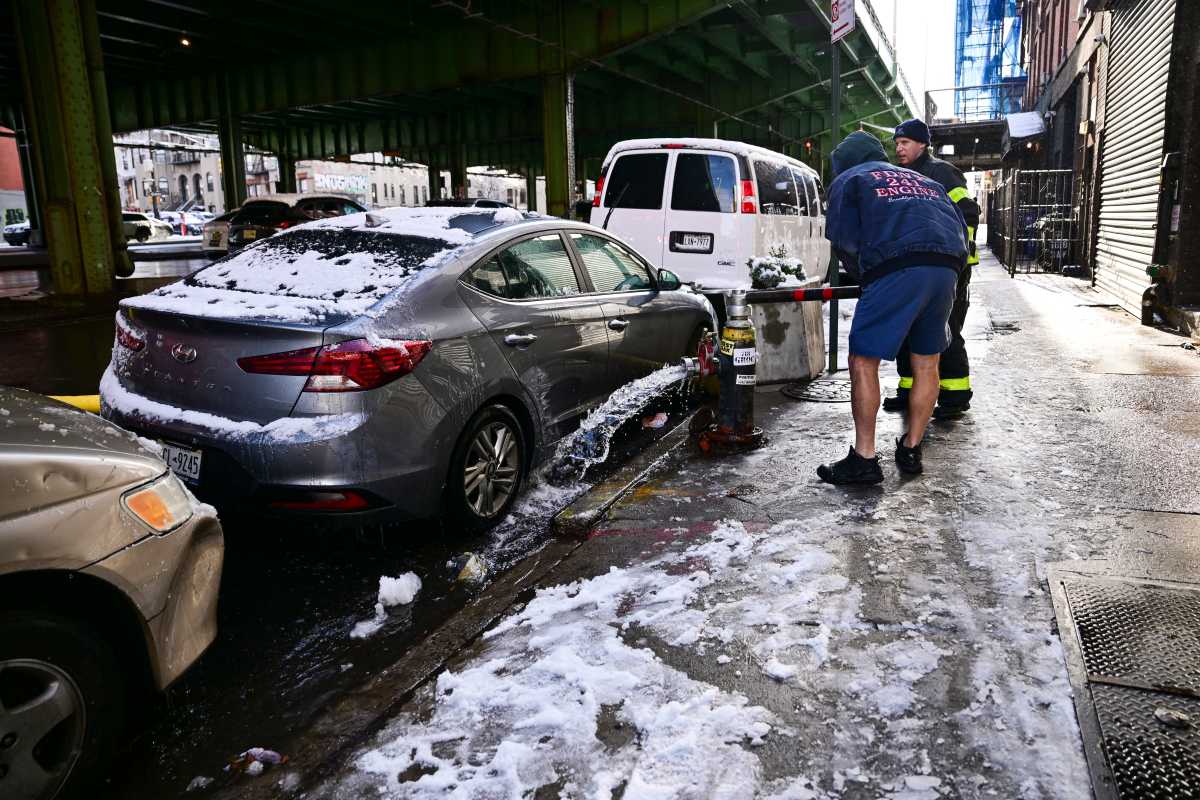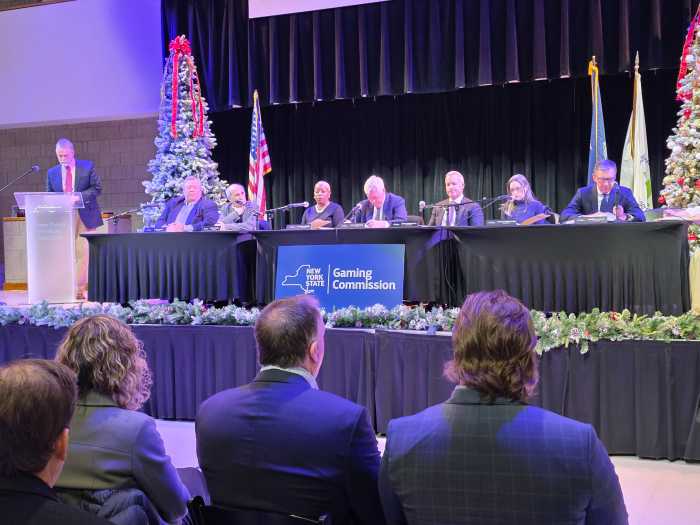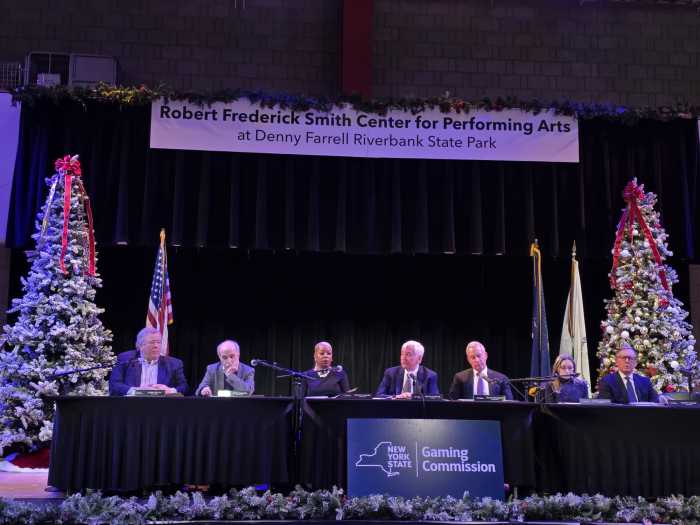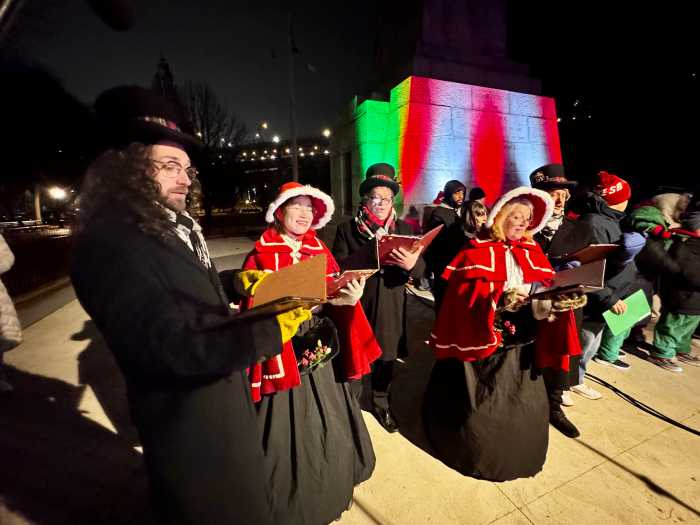The City Council passed its long-awaited outdoor dining bill on Thursday, making the pandemic-era program permanent but with significant curtailments to how New Yorkers have eaten al-fresco the past few years.
The bill was approved in the Council Thursday afternoon by a vote of 34 in favor to 11 against. It will now go to the desk of Mayor Eric Adams, who has touted the bill and is expected to sign it.
“Even three years later, New Yorkers love outdoor dining,” said Councilmember Marjorie Velázquez (D-Bronx), the chair of the Consumer and Worker Protection Committee and primary sponsor of the bill. “We spent years negotiating with various industries and stakeholders to create a uniform program that considers the unique circumstances in each borough and neighborhood.”
Ahead of a vote in the committee on Thursday, Velázquez described the new program as “more affordable, more accessible, faster, [and] with less bureaucratic hurdles” than was seen during the pre-pandemic era.
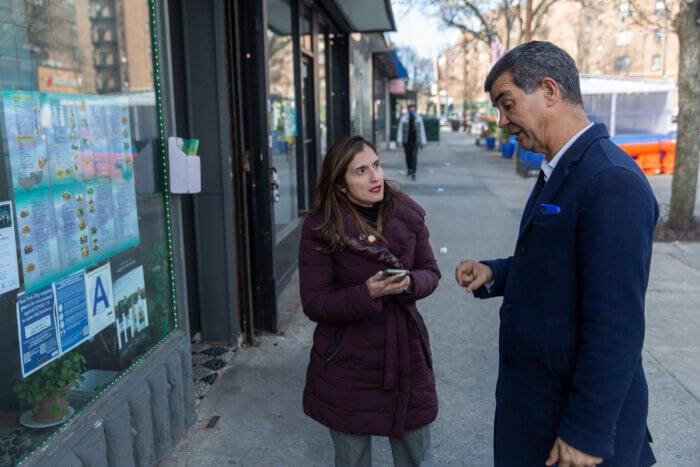
The bill allows for sidewalk cafes to operate year-round, but those dining setups in the roadway will not be allowed from Nov. 30 to March 31 of a given year, requiring restaurants to pursue costly and labor-intensive setup and disassembly multiple times per year. The bill also only allows for “open-air” setups, demanding businesses to take down the enclosed dining sheds that came to symbolize the pandemic era in the city. Hours of operation will be restricted to between 10 a.m. and midnight.
The bill will also require all outdoor dining applications to go before local community boards for review. Many of the city’s community boards, whose roles are mostly ceremonial but influential, voted against making the loosened outdoor dining regulations permanent, and were the site of raucous meetings where angry locals railed against the program. Those outdoor dining applications filed in historic districts must also get approval from the Landmarks Preservation Commission.
Still, the New York City Hospitality Alliance, a major restaurant trade group, has embraced the bill, arguing it was a necessary compromise to make with the program’s vocal opponents to ensure it could remain in place. In an op-ed for amNewYork Metro, Alliance chief Andrew Rigie and Velázquez argued the new bill is a “vast improvement over the sidewalk cafe law the city had in effect before COVID-19 and the pandemic outdoor dining program.”
Eateries have enjoyed a streamlined outdoor dining permitting process since the height of the pandemic in 2020, when restaurants and bars were forced to shut their doors to customers and the industry faced an existential crisis. Before the pandemic, outdoor dining was limited through zoning almost exclusively to Manhattan; fees could run thousands of dollars and the arduous approval process could take months. Sheds were forbidden.
The Hospitality Alliance has credited pandemic-era outdoor dining, which was approved on an emergency basis, with saving 100,000 restaurant jobs during the pandemic.
“We’re thrilled the City Council has passed this historic permanent outdoor dining program that includes sidewalk cafes and streeteries,” Rigie said in a joint statement with Hospitality Alliance counsel Rob Bookman. “The new law will cut the red tape and fees for restaurants to participate when compared to the overly restrictive pre-pandemic sidewalk café licenses, which excluded so many restaurants throughout the five boroughs from offering al fresco dining.”
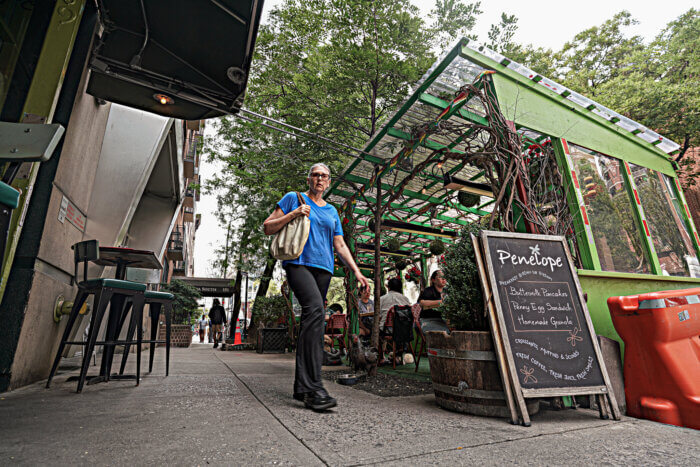
The final bill was the result of a long-gestating compromise between Mayor Adams, council members, and stakeholders in the restaurant industry, along with neighborhood residents who complained that outdoor dining sheds attract vermin, create noise, and take up parking spots. The long limbo on the program’s legal status proved frustrating for restaurant owners, who operate in a hyper-competitive industry with razor-thin margins.
In a statement, the mayor said he was “proud” of the final bill and the permanent program it creates. He acknowledged the role of the emergency program in saving the city’s restaurants, but lodged criticism that “too many sheds were abandoned and left to rot and too few lived up to our vision of what our streets should look like.”
“This bill preserves the best parts of the temporary program and eliminates the worst,” said Hizzoner. “We will create a vibrant, clean, and safe streetscape; give restaurants the clarity they need to continue serving their customers; and make New York City the best outdoor dining city in the world.”
License fees will stand at $1,050 for four-year terms, considerably less than they cost pre-pandemic, while separate annual “revocable consent” fees will be levied with differing amounts based on location and square footage; the outer boroughs will have lower fees than Manhattan.
The bill was also given a seal of approval by advocates for reimagining public space, though a cautious one critical of the winter prohibition.
“The bill isn’t perfect; reclaiming space for people is never easy. We believe the best version of Open Restaurants would allow the flexibility for an outdoor meal in March as well as May,” said Sara Lind, co-executive director of Open Plans. “But as a next step, this vote is historic.”
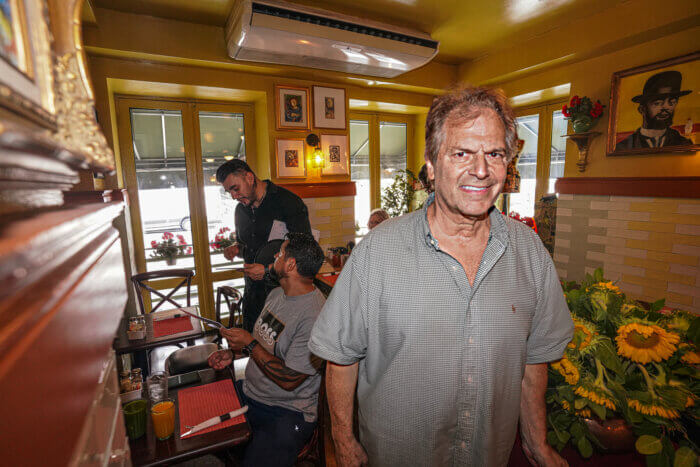
But some restaurant owners are worried that the requirement to continuously take down and rebuild their structures could prove too costly and undermine the program.
“The electrical outlets…fans and heating, you have to disassemble them, which costs probably between $3,000 and $4,000 just to assemble them. To reassemble them it could cost another $1,000,” said Andrew Silverman, a restaurateur with several eateries to his name, at his brunch spot Penelope in Kips Bay. “For my restaurants, it will probably be like $25,000 to take down and store.”
Silverman called outdoor dining sheds a “godsend” amid the tough business climate during and after the pandemic. He feels that having to take down his verdant roadway shed, and all of the investment in it, will negatively affect his business.
“Do you have a choice? What are you going to do when you’re all in for, you know, millions of dollars in this thing,” Silverman said. “Eight months is better than nothing.”
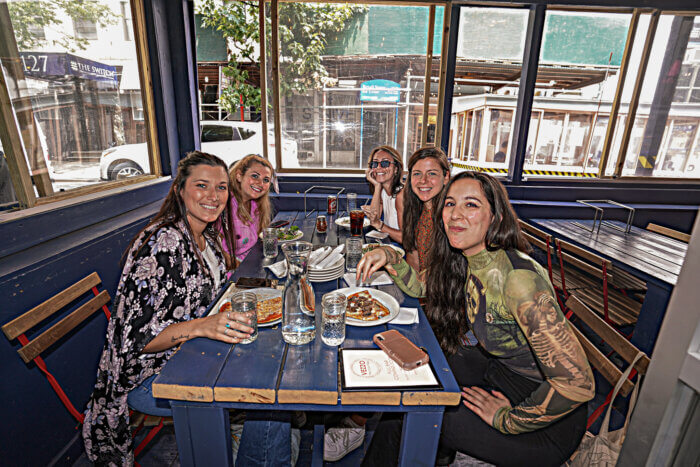
The eleven lawmakers who voted against the program come from across the partisan spectrum. Some, like Brooklyn Councilmember Kalman Yeger, expressed concern at giving city agencies control over the particulars of the program, while lower Manhattan Councilmember Christopher Marte, whose district includes a large amount of outdoor dining, characterized the final program as ignoring long-term residents in favor of gentrifiers looking to party late into the night.
The program will continue to be administered by the Department of Transportation, a pandemic-era change from the previous control by the smaller Department of Consumer and Worker Protection. DOT will promulgate rules and finalized design guidelines, and businesses will have until November of 2024 to take down the old sheds not compliant with the new guidance; fines could run up to $1,000.
